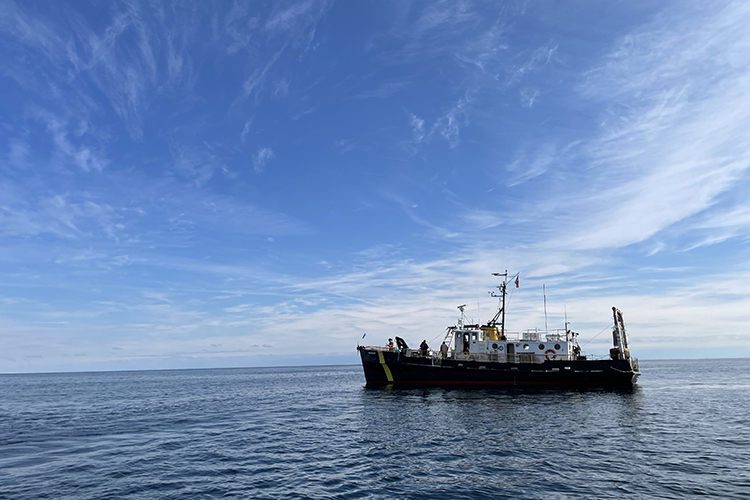June 19-July 1
Institution: UW-Milwaukee along with UW-River Falls faculty
Open to Any UW Student
Students will get hands-on learning while they explore the physical, chemical, optical, and biological characteristics of Lake Michigan and near-shore environment using the research vessel Neeskay. This is three-credit special topics course 190-002 at UW-Milwaukee.
Students must apply to enroll. Students not enrolled at UW-Milwaukee can contact Mallory Kaul for information about enrolling as a special student. Limited to 12 students.
Students will participate in a week-long deep immersion activity on Lake Michigan with UW-Milwaukee Senior Scientists Russell Cuhel and Carmen Aguilar, with a second week hosted by UW-River Falls Geosciences Professor Kevin Thaisen. The first week of the program will be devoted to immersion learning and expeditionary experience with physical, chemical, optical, and biological aspects in a river-harbor-nearshore-offshore gradient of southwestern Lake Michigan. Students will accumulate web-based and practical hands-on resources for pre-, during-, and post-expedition investigations. Participants will specialize in specific measurement techniques in teamwork with Drs. Cuhel and Aguilar and their research associates and well-experienced, skilled student(s).
Teams will rotate so that each participant actively engages in several techniques but long enough to develop practical skill in their application. Most teams will execute several different activities onboard the research expeditions, some of which will be designed to provide real-time analytical outcomes relevant to the gradients and locations being explored. At the shore base, participants will work up results of their complex specific analyses and present detailed “how-to” and “what happened?” sharing in group workshops
